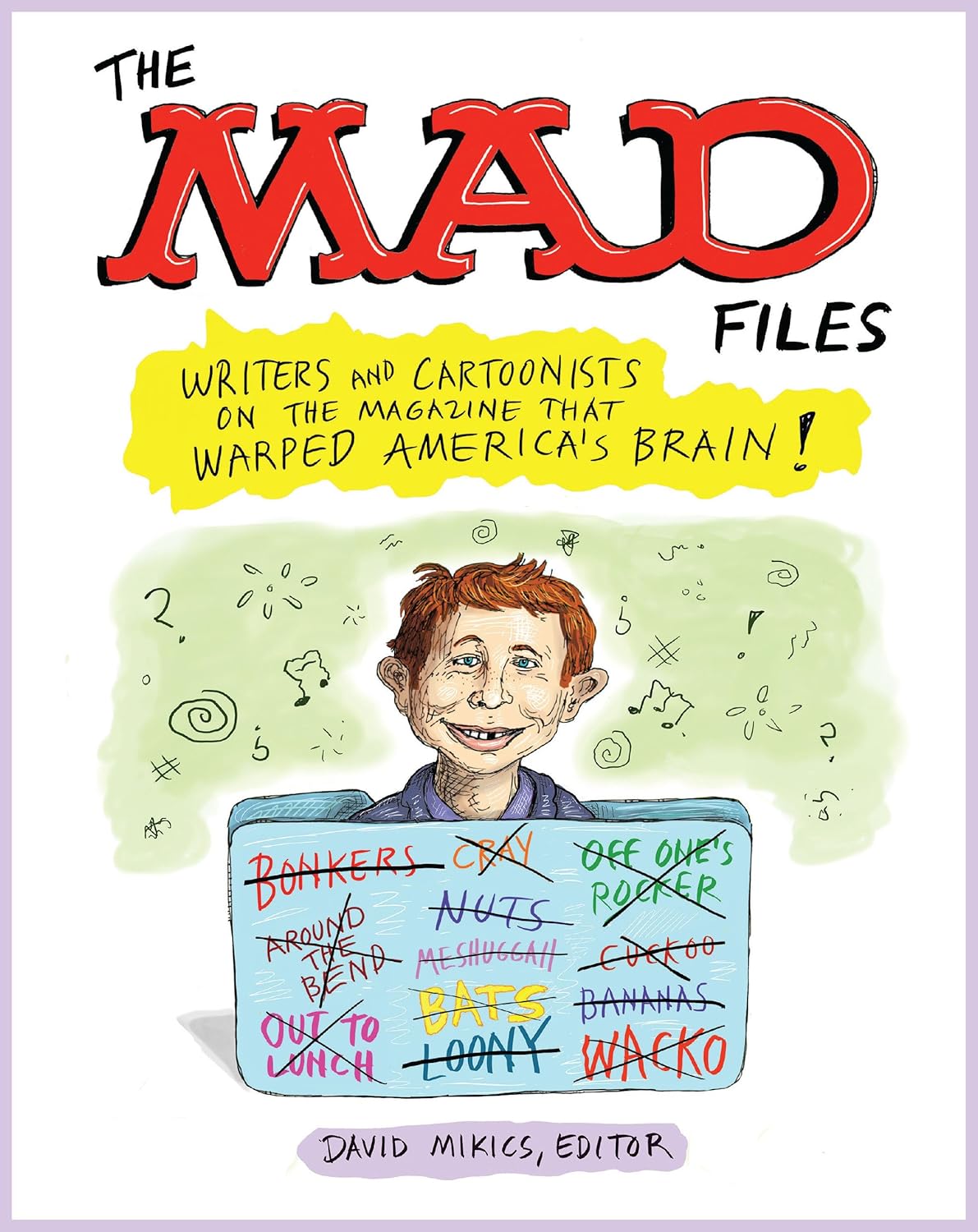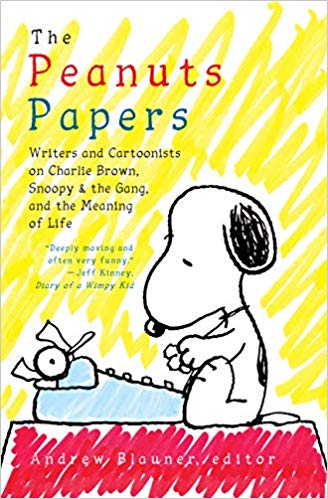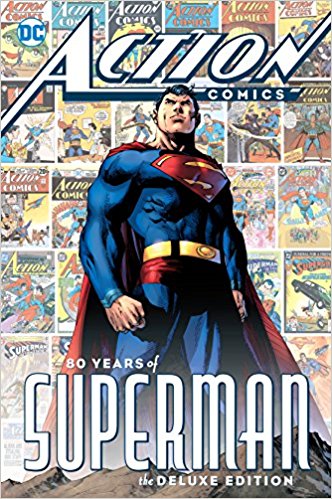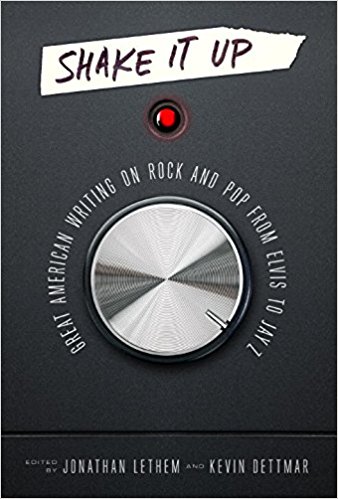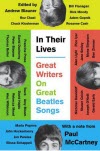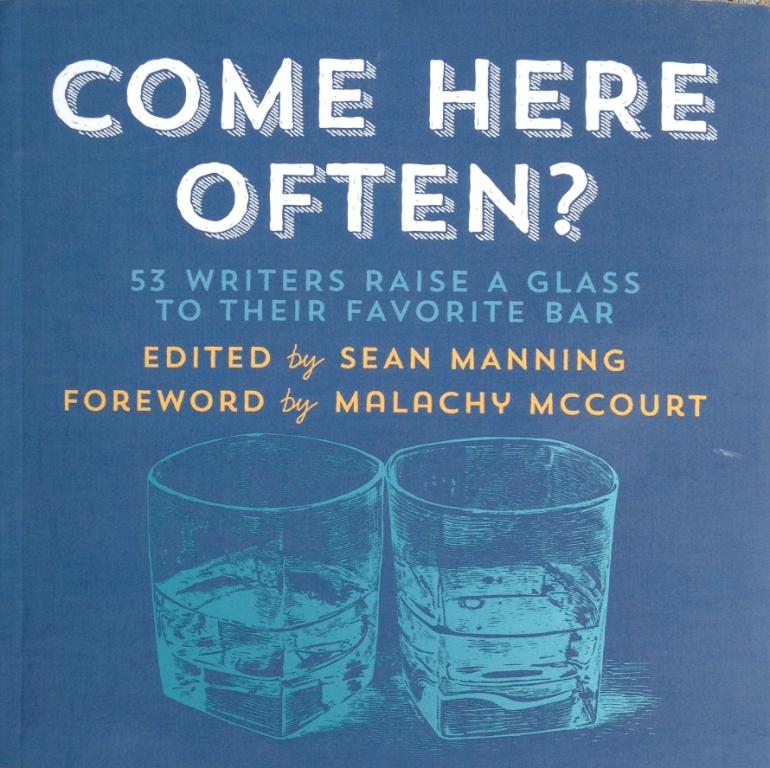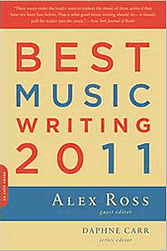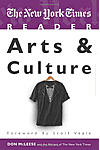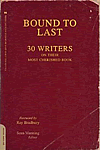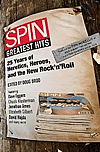Anthologies with pieces by David Hajdu
The Mad Files: Writers and Cartoonists on the Magazine that Warped America's Brain
A mainstay of countless American childhoods, Mad magazine exploded onto the scene in the 1950s and gleefully thumbed its nose at all the postwar pieties. Mad became the zaniest, most subversive satire magazine ever to be sold on America’s newsstands, anticipating the spirit of underground comix and ’zines and influencing humor writing in movies, television, and the internet to this day.
Edited by David Mikics, The Mad Files celebrates the magazine’s impact and the legacy of the Usual Gang of Idiots who transformed puerile punchlines and merciless mockery into an art form. 26 essays and comics present a varied, perceptive, and often very funny account of MAD’s significance, ranging from the cultural to the aesthetic to the personal.
(Above text courtesy of Library of America)
Over the span of fifty years, Charles M. Schulz created a comic strip that is one of the indisputable glories of American popular culture—hilarious, poignant, inimitable. Some twenty years after the last strip appeared, the characters Schulz brought to life in Peanuts continue to resonate with millions of fans, their beguiling four-panel adventures and television escapades offering lessons about happiness, friendship, disappointment, childhood, and life itself.
In The Peanuts Papers, thirty-three writers and artists reflect on the deeper truths of Schulz’s deceptively simple comic, its impact on their lives and art and on the broader culture. These enchanting, affecting, and often quite personal essays show just how much Peanuts means to its many admirers—and the ways it invites us to ponder, in the words of Sarah Boxer, “how to survive and still be a decent human being” in an often bewildering world.
(Above text courtesy of Library of America)
80 Years of Superman: Deluxe Edition
80th anniversary celebration of the most important comic book in American history: Action Comics #1, featuring the first appearance of Superman. See the work of generations of top writers and artists on the original superhero, and enjoy sparkling essays from literary wizards who have won Pulitzer Prizes and hit the bestseller lists.
(Above text courtesy of DC Comics)
Shake It Up: Great American Writing on Rock and Pop from Elvis to Jay Z
Editors Jonathan Lethem and Kevin Dettmar invite the reader into the tumult and excitement of the rock revolution through fifty landmark pieces by a supergroup of writers on rock in all its variety, from heavy metal to disco, punk to hip-hop.
(Above text courtesy of Library of America)
In Their Lives: Great Writers on Great Beatles Songs
The Beatles’ influence—on their contemporaries, on our cultural consciousness, and on the music industry ever after—is difficult to overstate. We all have a favorite song from the band that made us want to fall in love, tune in, and follow our dreams. Arranged chronologically by the date of the song’s release, these essays highlight both the Beatles’ evolution as well as the span of generations their music affected. From Beatlemaniacs who grew up listening to the iconic albums on vinyl to new fans who download the songs on iTunes, each contributor explores a poignant intersection between Beatles history and personal history.
(Above text courtesy of Blue Rider Press)
Editor Sean Manning’s well curated collection of anecdotes, stories and sorrowful remembrances is a paean to these cathedrals of booze—the charming or surly wait staff, the choice music blaring from the jukebox and even the strict rules that define the space’s etiquette. Not to undermine the seriousness of alcoholism—and many of these stories hint at the perils of overconsumption—there is true romance in the home-away-from-home feeling that comes with being a regular at one’s favorite watering hole. Though the tales are inherently nostalgic, many of these places having long since shuttered, there is ultimately the optimism that there’s a clean, well lighted place for each of us. A delightful collection.
(Above text courtesy of Kirkus Reviews.)
Best Music Writing has become one of the most eagerly awaited annuals of them all. Celebrating the year in music writing by gathering a rich array of essays, missives, and musings on every style of music from rock to hip-hop to R&B to jazz to pop to blues, it is essential reading for anyone who loves great music and accomplished writing. Scribes of every imaginable sort—novelists, poets, journalists, musicians— are gathered to create a multi-voiced snapshot of the year in music writing that, like the music it illuminates, is every bit as thrilling as it is riveting.
(Above text courtesy of DaCapo Press)
New York Times Reader: Arts & Culture
Covering the expanse of arts featured in The Times, from orchestral music and museum exhibitions to video games and hip- hop, this Reader makes no hierarchical distinction between the pop arts and the fine arts. Don McLeese explores both critical essays and reviews (by genre) as well as profiles and trend pieces to help students sharpen their critical instincts. How we respond to the arts reveals as much about us individually as it does about the art being evaluated. Seasoned teacher McLeese, who has worked both as a critic covering a wide range of arts and as a magazine editor, adeptly weaves his insightful commentary to show there are no right or wrong opinions, just stronger and weaker arguments.
(Above text courtesy of The New York Times.)
Bound to Last: 30 Writers on Their Most Cherished Book
Bound to Last, an array of writers come to the passionate defense of the printed book with spirited, never-before-published essays celebrating the hardcover or paperback that matters most to them—not necessarily because of its content, but because of the significance it holds for them as a one-of-a-kind, irreplaceable object. Whether focusing on the circumstances behind how a particular book was acquired, for example, or how it has become forever "bound up" with a specific person, time, or place, each piece collected here confirms — poignantly, delightfully, irrefutably — that every book tells a story far beyond the one found within its pages.
Bound to Last features original essays by Ray Bradbury, Francine Prose, Julia Glass, Douglas Brinkley, David Hajdu, Jim Shepard, Wells Tower, Abigail Thomas, Anthony Swofford, and others.
(Above text courtesy of DaCapo Press.)
More New York Stories: The Best of the City Section of the New York Times
For 16 years, local news and quirky, personal stories found a home in the City section of the Sunday New York Times. Former section editor Rosenblum gathers 50 of the best pieces of the post–September 11 era by masters of the form including Edwidge Danticat and Francine Prose. Roy Hoffman's remembrance of a West Village buddy with cerebral palsy who was forced to confine his world to the few blocks he could navigate is complemented by Saki Knafo's tribute to a group of aging amateur athletes who've been playing basketball together for 33 years and David McAninch's appreciative travelogue of the "forgotten" cityscape of lunch counters, taverns, and cigar shops — all odes to a New York less romanticized and more real. Tragedies — like the story of giving a homeless man buried in the city's potter's field a proper family funeral — are squeezed like subway passengers between droller accounts of, say, the weekly lunch ritual of the New Yorker's wry cartoonists. Organized thematically into such categories as "Characters" and "Rituals, Rhythms and Ruminations," this rich sampling delivers.
(Above text courtesy of Publishers Weekly.)
"New York is the plural city par excellence, the place of many tales. This new collection, taken from the pages of the city paper, gives us a new luxuriance of New York stories, neither neatly splashy nor narrowly sociological, but instead with the spice and eccentricity and plural energy that New Yorkers will recognize as ours and non-New Yorkers may wish was theirs." — Adam Gopnik, author of Through The Children's Gate: A Home In New York (http://morenystories.fromthesquare.org/)
SPIN: Greatest Hits: 25 Years of Heretics, Heroes, and the New Rock 'n' Roll
The official book celebrating the 25th anniversary of SPIN magazine From its first issue in 1985, SPIN has cultivated a reputation for brilliant writing and broad musical coverage, including genres and artists long abandoned by its competitors. From punk to electronica, goth to gangsta rap, emo to garage rock, and hip-hop to indie rock, SPIN has covered it all and featured interviews with leading artists through every musical wave of the last 25 years.
SPIN: Greatest Hits brings together some of the classic stories that have appeared in the magazine, each with a new introduction by the author offering historical perspective on the article.
• Compiles the best articles from well-known writers such as Chuck Klosterman, Jonathan Ames, Elizabeth Gilbert, and David Hajdu
• Features the best SPIN interviews with Lou Reed, Noel Gallagher, Chuck D, and other influential musicians
• Includes hilarious sidebars such as "Six Extreme Metal Bands That Could Be Mistaken for Flavors of Herbal Tea," "Six Misguided Attempts to Falsify Rock History," and more Packed with great writing and information spanning a quarter- century of iconic music and musicians, SPIN: Greatest Hits is an essential keepsake for music fans and lovers of pop culture.
(Above text courtesy of Wiley publishers.)
Earlier anthologies with pieces by Hajdu

The Best American Comics Criticism Includes piece on comic-book burning which also appears, in slightly different form, in The Ten-Cent Plague.

O.K. You Mugs: Writers on Movie Actors Includes Hajdu's essay on Elmer Fudd, later published, in slightly different form, in Heroes and Villains.

Best American Magazine Writing 2004 Includes Hajdu's profile of Wynton Marsalis, originally published in The Atlantic Monthly and nominated for a National Magazine Award. This piece, revised slightly, also appears in Heroes and Villains.

Best Music Writing 2000 Includes Hajdu's essay on the enigmatic relationship between Billy Strayhorn and Duke Ellington, a piece written for Vanity Fair after publication of Lush Life: A Biography of Billy Strayhorn. This essay can now be read only here.

Studio A: The Bob Dylan Reader Includes and excerpt from Hajdu's Positively 4th Street.
